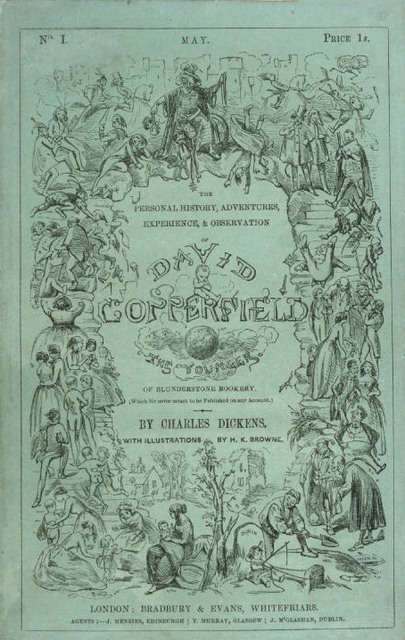Posts in category 'books'
Review: Last Chance to See

New York Times bestselling author Douglas Adams and zoologist Mark Carwardine take off around the world in search of exotic, endangered creatures.
Join them as they encounter the animal kingdom in its stunning beauty, astonishing variety, and imminent peril: the giant Komodo dragon of Indonesia, the helpless but loveable Kakapo of New Zealand, the blind river dolphins of China, the white rhinos of Zaire, the rare birds of Mauritius island in the Indian Ocean. Hilarious and poignant—as only Douglas Adams can be—Last Chance to See is an entertaining and arresting odyssey through the Earth’s magnificent wildlife galaxy.
Douglas Adams is, of course, most famous for his work on the Hitchhiker’s Guide to the Galaxy books, but if there was one piece not related to HHGTTG by DNA that I wish people would read, it would be this one.
Mr. Adams was deeply fascinated with the natural world, and this love for the world around him absolutely shines through in this book, wherein Mr. Adams records his experiences traveling the world, encountering various endangered species in their natural habitat. His wonderful observational skills, and more importantly, incredible talent for putting those observations on paper in his wry, witty way, allow him to truly draw the reader into his experiences, and to feel his awe and reverence for the things he, well, had a rare chance to see.
At once sad and hopeful, I think some of his best writing is done in this volume.
Mr. Adams has said he was most proud of this book. If you ask me, he was right to be.
Update (2020-02-26):
Now, eight years later, I have to admit, this book still leaves me feeling incredibly bitter sweet.
On the one hand, the Kakapo has seen genuine success, with the Kakapo Recovery programme demonstrating the power of intense intervention to save endangered species. On the other hand, the Northern white rhinoceros is now completely extinct, having disappeared in the wild and died off in captivity.
I will forever be sad that Douglas Adams died as young as he did. However, I can’t help but wonder how he’d feel if he saw how little progress we’ve collectively made in honouring and protecting the world in which we live.
Review: David Copperfield

The story traces the life of David Copperfield from childhood to maturity. David is born in Blunderstone, Suffolk, near Great Yarmouth, Norfolk, England, in 1820, six months after the death of his father. David spends his early years with his mother and their housekeeper, Peggotty. When he is seven years old his mother marries Edward Murdstone. David is given good reason to dislike his stepfather and has similar feelings for Murdstone's sister Jane, who moves into the house soon afterwards. Murdstone attempts to thrash David for falling behind in his studies. David bites him and soon afterwards is sent away to a boarding school, Salem House, with a ruthless headmaster, Mr. Creakle. There he befriends James Steerforth and Tommy Traddles.
Well, after at least of month of effort, I finally finished David Copperfield (just in time, too, given the start of cycling season, which has put a rather sizeable dent in my available reading time), and I must say, it’s one of the best books I’ve read in a long long time. Of course, this probably shouldn’t be surprising, Dickens being considered one of the greatest English language authors… ever, really. But, given my general aversion to “classics” (despite my constant effort to read them), the language often being difficult to digest, and the comprehension of the subject matter often reliant on knowledge about the period the work was written in, I was skeptical. Victorian period pieces? How enjoyable a read could that possibly be?
Turns out, very enjoyable! Dickens is considered a great master of characterization, and I never really understood what that meant until I read this book. Unlike most books, where my drive to read is fueled by a desire to find out “what happens next”, aided by little breadcrumbs the author sprinkles along the way, when reading David Copperfield, I found it was the characters I cared about. Would Mr. Micawber ever sort out his financial woes? Would Uriah Heep’s hold on Mr. Wickfield be loosed, and would he get his comeuppance? Would Traddles finally get married? Would Mr. Dick finally exorcise King Charles I from his mind? It really was a unique reading experience, sad and serious at times, uproariously funny at others (every time I read the closing on one of Mr. Micawber’s letters, I quite literally laughed out loud).
So, if you can handle a slightly more challenging read (the language isn’t difficult, just different in style), I’d suggest checking out David Copperfield. Meanwhile, I can now dig into Nicholas Nickleby… expect another review in, say, three months time.
On Douglas Adams
Over the years, I’ve read a reasonably wide range of stuff, running the gamut from comedy and drama to horror and science fiction, both classic and contemporary. But for some reason, whenever I get tired of finding new things to read, or just need to dig into something familiar and light hearted (yet still weighty and thoughtful, if I wish), I return to “The Hitchhiker’s Guide to the Galaxy”. There’s something about Mr. Adams’ brilliant, canted, quirky take on humanity that I just can’t get enough of. Heck, the very title of this blog is an homage to his wonderful work.
Well, today, I came across a previously unpublished interview with the man (appeared on Slashdot, originally) from back in 1978, before HHGTG really took off, and I am once again reminded of why I enjoy his work so much, and why his loss was such a sad event. One of my favorite quotes is this:
If The Hitchhiker's Guide to the Galaxy makes money, I shall enjoy that. But what I'll enjoy most is having proved that you don't have to underestimate people. I don't like the notion that you set yourself up as saying "This is what people like, therefore this is what we'll do." That's patronizing.
So for any fans of Adams’ work, or HHGTG, check it out. It’s an interesting read about a man that is sorely missed (a phrase I rarely turn in reference to celebrities).
Trip 2, Fini
Well, trip number two has come to a close, this time a jaunt out to Regina for some mom-time with Linda! As usual, food was abundant, as was amusement (and slightly hurt feelings :) with the copy of Ticket To Ride that we purchased and hauled along. Among other things that were accomplished, I:
- Proved to myself that my knitting needles (as previously mentioned) would easily get through airport security (they didn’t even register on the X-Ray, so far as I know).
- As a result of 1, half-finished Lenore’s new hat. Unfortunately, I ran out of yarn, as I neglected to bring a second ball.
- Finished reading “Red_Mars”, a rather largish tome by Kim Stanley Robinson which details the terraforming of Mars.
- Learned how to make Cabbage Rolls! Linda is an excellent tutor. :)
- Started reading “Robots and Empire”, by the legendary Isaac Asimov.
And on the topic of Red Mars, a mini review. In short, it’s a massive vision, incredibly detailed and realistic. Characterization is good, though the dialog a little unbelievable at times. The plot can be a bit ponderous, and Robinson seems to relish showing off his knowledge of Mars topography, going on for pages describing the Martian landscape. The discussion of the sociological impacts of Martian colonization are quite fascinating, particularly in conjunction with new technologies that are invented in the course of the story.
In short, highly recommended for anyone into hard science fiction and who can stand a healthy dose of Tolkein-esque verbosity.